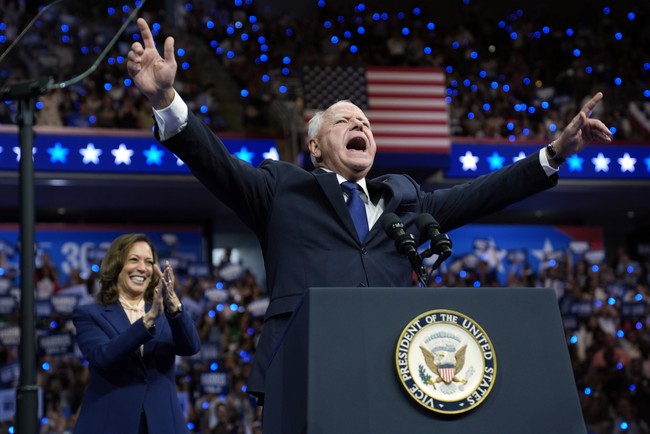The Biden administration has emphasized a distinction between Israel’s expanded military operations against Iranian-backed militant groups, like Hamas and Hezbollah, and Iran’s retaliatory missile strikes on Israel, which it condemned as an escalation.
Officials across the administration are standing by Israel’s increased attacks on Hezbollah leaders in Lebanon, while continuing to press for peace. They have also vowed consequences after Iran launched approximately 200 ballistic missiles at Israel on Tuesday.
President Joe Biden praised both U.S. and Israeli military efforts in thwarting the missile barrage, asserting, “Make no mistake, the United States is fully, fully supportive of Israel.”
Secretary of State Antony Blinken labeled the Iranian missile strike as “totally unacceptable” and urged global condemnation. Meanwhile, National Security Adviser Jake Sullivan acknowledged the gravity of Iran’s escalation, but there was minimal suggestion that Israeli actions provoked it.
Just a week earlier, the Biden administration had called for an immediate ceasefire between Israel and Hezbollah, aiming to avoid broader conflict in the Middle East. However, the administration’s stance has evolved as Israel continues its ground incursions into Lebanon after a major airstrike in Beirut killed key Hezbollah and Iranian military leaders.
U.S. officials maintain that their consistent support of Israel’s right to defend itself aligns with changing on-the-ground conditions, while stressing that their long-term goal remains a ceasefire. They have defended recent Israeli strikes on Hezbollah leadership, a contrast to their previous criticisms of Israel’s operations in Gaza.
At the Pentagon, Maj. Gen. Pat Ryder underscored the need to prevent the Middle East conflict from widening but reaffirmed broad support for Israel’s efforts to dismantle Hezbollah’s attack infrastructure along the border.
State Department spokesman Matthew Miller justified Israel’s actions as self-defense, emphasizing that the targeting of senior Hamas and Hezbollah figures and the ground incursions were in response to attacks on Israeli civilians.
He also differentiated Iran’s response as dangerous, supporting U.S.-designated terrorist groups, and warned of the risks associated with this stance. However, analysts like Jon Alterman have noted that U.S. influence on Israeli Prime Minister Benjamin Netanyahu appears to be waning, raising concerns about the broader consequences of unchecked conflict.
 Telegram is where we really talk. Don't miss out!
Telegram is where we really talk. Don't miss out!








